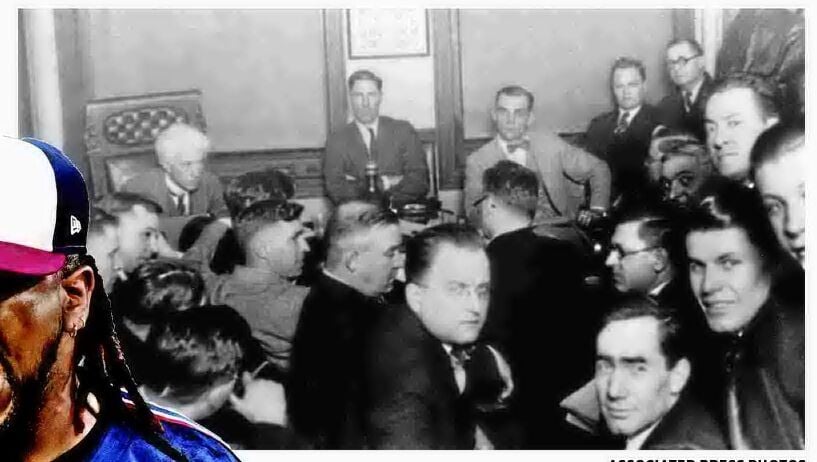The intricate world of professional sports has long grappled with the insidious challenge of gambling controversies, a concern that has intensified dramatically since a pivotal U.S. Supreme Court ruling in May 2018. This landmark decision, which dismantled a federal ban on sports betting, inadvertently opened the floodgates for a wave of high-profile incidents involving athletes and officials, casting a persistent shadow over the integrity of competitive play across various leagues.
Historically, the specter of fixed games and illicit wagers has haunted sports, predating modern regulations. Iconic events like the 1919 Black Sox scandal in baseball, where eight Chicago White Sox players were accused of intentionally losing the World Series, established an early, chilling precedent. Similarly, early hockey saw Babe Pratt’s temporary suspension in 1946, while college basketball endured the Kentucky Wildcats’ scandal in 1951, where players faced accusations of taking bribes, leading to a season cancellation and highlighting the long-standing battle against athlete misconduct.
Major League Baseball, in particular, has repeatedly found itself at the epicenter of betting scandals. The notorious lifetime ban of Pete Rose in 1989 for wagering on the Cincinnati Reds, a ban posthumously lifted earlier this year, remains a cautionary tale. More recently, players like San Diego Padres infielder Tucupita Marcano received a lifetime ban in 2024 for extensive baseball betting, alongside others like Michael Kelly, Jay Groome, Andrew Saalfrank, and José Rodríguez who faced one-year suspensions. Umpire Pat Hoberg was also fired for policy violations, underscoring MLB’s rigorous enforcement of betting regulations.
The National Football League and National Basketball Association have not been immune to these integrity breaches. NFL history includes the 1963 suspensions of Hall of Famers Paul Hornung and Alex Karras for betting on league games, followed by Calvin Ridley’s full-season suspension in 2022. The NBA recently issued a lifetime ban to Toronto Raptors forward Jontay Porter in April 2024 for disclosing confidential information to bettors and wagering on games, including his own team to lose, actions Commissioner Adam Silver deemed “blatant,” highlighting the severe consequences of league suspensions.
Beyond American shores, international sports have also wrestled with widespread gambling controversies. Italy’s “Totonero” match-fixing scandal in 1980 saw teams relegated and prominent players, including Paolo Rossi, banned. In ice hockey, Ottawa Senators forward Shane Pinto received a 41-game NHL suspension in late 2023 for sports gambling, though specifics of his wagering remain undisclosed. These global incidents reinforce the universal challenge sports organizations face in safeguarding competition.
A recent high-profile case vividly illustrates the financial and reputational damage illicit gambling can inflict: the scandal involving Shohei Ohtani’s former interpreter, Ippei Mizuhara. Mizuhara pleaded guilty to stealing nearly $17 million from Ohtani’s bank account to cover massive gambling debts to an illegal bookmaker, leveraging a language barrier to perpetuate bank and tax fraud. This shocking revelation exposed vulnerabilities even at the highest echelons of professional sports, emphasizing the need for stringent oversight and sports integrity measures.
Ongoing investigations continue to uncover and address emerging threats to sports integrity. In MLB, Cleveland Guardians pitchers Luis Ortiz and Emmanuel Clase were recently placed on paid leave amidst separate sports betting investigations, with Ortiz’s probe specifically tied to unusual activity on in-game prop bets. Such cases demonstrate the persistent vigilance required by leagues and betting-integrity firms, which now actively monitor wagering patterns to flag suspicious behavior and ensure the fairness of play.
The repercussions for those who violate gambling policies are increasingly severe, serving as strong deterrents. Athletes and officials face lifetime bans, lengthy suspensions, and significant financial penalties, along with the indelible stain on their careers and public image. These stringent measures reflect the unwavering commitment of professional sports organizations to maintain public trust and preserve the fundamental integrity of their competitions, reinforcing that unauthorized gambling will not be tolerated.
Ultimately, the continuous battle against gambling controversies shapes the very landscape of professional sports, demanding constant adaptation from leagues and vigilant adherence from participants. As legal sports betting expands globally, the imperative to uphold sports integrity through robust betting regulations and decisive enforcement becomes ever more critical, ensuring that the spirit of fair competition remains paramount for fans and players alike, securing the future of the game.





Leave a Reply